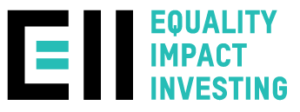This article was originally published by Equality Impact Investing on November 18, 2021.
Inspired by the successful uptake of the Task Force on Climate-related Financial Disclosures (TCFD), a wide range of stakeholders from the Global North and Global South are collaborating to launch a Task Force on Inequality-related Financial Disclosures (TIFD). Conceived as an explicit systemic risk management framework, TIFD aims to reduce inequality created by the private sector by improving transparency on corporate and investor contributions to inequality, while at the same time illuminating how inequality can present risks to companies and investors.
TIFD will provide guidance, thresholds, targets, and metrics to enable companies and investors to measure and manage their impacts on inequality, as well as inequality’s impacts on company and investor performance. Civil society organizations, regulators, and investors will be able to use TIFD to evaluate the private sector’s performance and hold corporations to account. An essential feature of TIFD is that it is designed with the principle of inclusive co-creation such that the legitimate representatives of the most vulnerable individuals and communities can participate as co-creators on equal footing.
The effort began in mid-2020 during the height of the COVID-19 pandemic when two organizations – Rights CoLab and the Predistribution Initiative – published “It’s Time for a Task Force on Inequality-related Financial Disclosures” in Responsible Investor calling for a “TCFD for inequality.” The article spawned a series of conversations and small and large group meetings involving primarily civil society organizations that are at the vanguard of devising solutions to inequality together with responsible investor and business field-building organizations. In July 2021, with a grant from the Tipping Point Fund for Impact Investing, the Argentine Network for International Cooperation (RACI) and the Southern Centre for Inequality Studies at University of Witwatersrand joined Rights CoLab and the Predistribution Initiative to form the TIFD Interim Secretariat.
It is our conviction that getting co-creation right is fundamental to the success of TIFD and the bedrock of any genuine attempt to right inequality. To meet the objective of reducing inequality through the very market that has contributed to it requires that TIFD be different from other disclosure frameworks for managing social and environmental risks: it demands that the most vulnerable individuals and communities are robustly represented in its development from the start. Those most adversely impacted by inequality are essential to defining inequality and developing the measurements for addressing the private sector’s contribution to it. Without their involvement, any disclosure framework for inequality cannot succeed.
Working from the principle of inclusive co-creation, during this inaugural year the Interim Secretariat is shepherding a process of international coalition-building. We are convening meetings with subject matter expert individuals and groups working on inequality from multiple perspectives and disciplines, including tax justice; climate and environmental justice; food, housing, and education justice; indigenous peoples rights; racial and ethnic justice; gender justice; disability justice and more. Our aim is to build a structure of TIFD regional hubs that will serve three goals. First, regional hubs provide an efficient means for coalition-building. Second, they provide a means for hub members to reflect upon local, place-based understandings of inequality that can be channeled into TIFD’s development. Third, they can provide a means for hub members to undertake policy and regulatory engagement within their jurisdictions.
The regional hubs will coexist alongside a network of thematic working groups, which will be organized to recognize the intersectionality of issues of gender, race, sexual orientation, ability, and other identities. During year two, under the guidance of a democratically appointed official Secretariat, the working groups will develop TIFD by mapping and synthesizing existing disclosure frameworks and indicators, identifying any gaps, and proposing measures to close those gaps. The goal is to have a completed framework that can be piloted by 2025.
Investors, businesses, policy makers, and regulators are also essential to the development of TIFD. These individuals can bring a critical understanding of the existing economic and political institutions that contributed to inequality, and of how adjustments to those systems can bring improvement. Nonetheless, in the deliberations to create TIFD, those who have held power will be asked to make space for rights holders to have equal voice and influence. The Interim Secretariat and its coalition partners will retain the services of a professional facilitator who can build trust and enable productive dialogue across all stakeholders.
Photo by Elyse Chia on Unsplash

